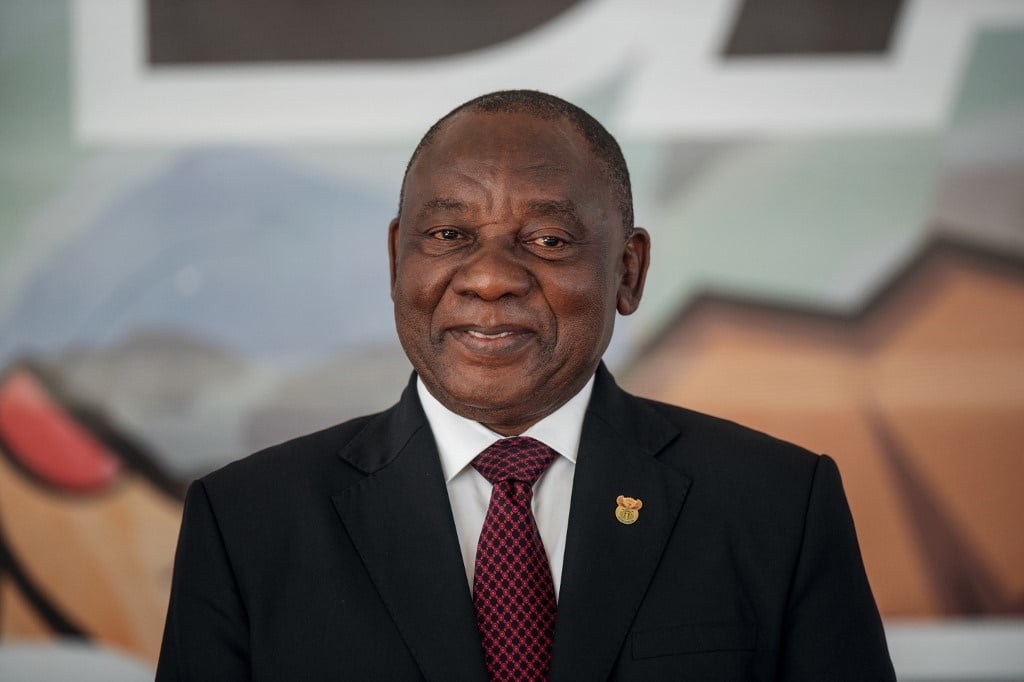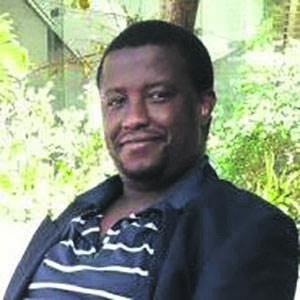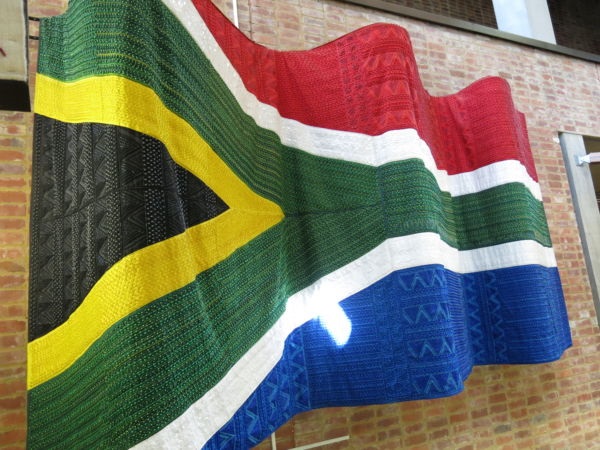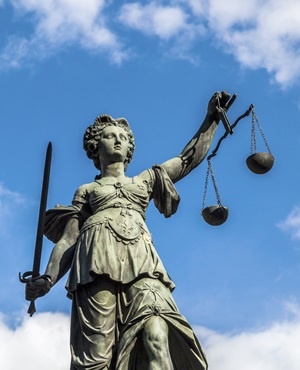
President Cyril Ramaphosa. (Photo by Michele Spatari / AFP)
As President Cyril Ramaphosa seems to be settling down into the highest position in the land, albeit leading a divided ANC and country that has fallen back from the united nation it promised to be after 1994.
We need to make our way back to winning ways, with a less polluted political and economic space.
The guys in Parliament can help here a great deal by providing a disciplined, diplomatic and robustly debating National Assembly were millions of people who follow the proceedings in Parliament can be indeed inspired with thought-provoking, informative and educational discussions.
Parliament should not only serve as an instrument of making and passing laws.
The National Assembly must also serve as our marketing tool.
SA should be using the leaders arguments made in parliament as another communication channel to spread what SA is about and why we are the best investment destination.
The dream of being the most powerful nation on earth; the greatest super-power the world has ever seen; and the best nation to live in must be sold daily in parliament without neglecting the serious challenges the country faces.
All parliamentarians should perfectly understand that they should be the role models for all South Africans.
The haulings, fighting and insults that have become the fabric of parliament must belong to the past. This, South Africans must demand from the leaders they elect.
Or else, those parliamentarians who put the country's image in tatters will be punished at the polls.
They must made to understand that they are the face and ambassadors of the country in whatever they do and wherever they go.
Their conduct in Parliament should be so up to scratch, that in spheres of life of the nation people must be able to say just look at how our
South African Members of Parliament (MPs) do things. And inspire everyone to follow in their footsteps.
They must find common ground in the fact that South Africa must be the best no matter what.
And all elected representatives MPs and councillors including government servants irrespective of party affiliation or ideological identity, must vow to always commit to putting South Africa first at all times and by all means.
All the countries economic, investment and business clusters in and out of parliament must be the mirror that the nation's leaders will reflect when going to international gatherings.
In short, SA must speak with one united, positive and developmental voice.
Because as things stand, that is not the case. And we run the risk of throwing away an opportunity to make South Africa the greatest country in the world, with the best standards of living not seen in history.
Not all is lost though.
And in the hour of Ramaphosa's 100 days and beyond, the lawyer, turned trade unionist, turned politician, turned businessman and then turned politician again, is somewhat a season campaigner it seems.
Although his political style of avoiding confrontation, at least publicly, annoys others, for me, it is showing signs that it could be the main factor that he will use to champion his political power and survival and possibly triumph.
So far so good, Mr President. Considering what he inherited from the not so spectacular Zuma years.
And judging by the developments unfolding at the Zondo Commission of Inquiry into State Capture, certain sections of the public so far have a feeling that it could take time for the Ramaphosa presidency to find its best form and lead the country into the most glorious future for all.
In any event, the work of building a prosperous nation for all, can never be a sole responsibility of any government alone, as history has shown.
The government's role among others is to facilitate and mobilise all sectors to work in unison for the total development of the nation.
In the case of South Africa, this kind of attitude in certain cases in the political leadership does exist.
Any government and leadership that does not think like this, should certainly not be in power leading any people.
Of course, political will can always be questioned.
However, judging by the standards set in motion from 1994 when we became a democracy, it is fair to say that the country's democratic institutions set up after a negotiated settlement and constitution, are fit for purpose.
The country's constitution is still revered as the most progressive and developmental in the world. Developmental, in its approach to reversing the social and economic imbalances from centuries of inequalities.
The country's democratic structures including the Chapter 9 institutions, are on top gear even though it can be said that there's room for progress.
The sad part of the story involves the state-owned enterprise (SOEs), of course.
Here is the story of how a nation's golden dream can turn into a social and economic nightmare.
A case in point, millions of South Africans who don't have pay TV, could not watch the Rugby Wold Cup 2019 on public broadcasters such as the SABC and ETV. Thanks to Heineken, the final was broadcasted on SABC.
Imagine how many more people, especially struggling young kids living in trying conditions could have been inspired more by Siya Kolisi and legends on their way to RWC 2019 glory.
Trying to find out why most of the RWC 2019 was not available on national broadcasters, has been a mission in itself. Government was not jumping up and down to fix this, so it seemed.
Some of the explanations doing the rounds ranged from Multichoice is monopolising all sports, because they can, they don't care about others; to that the SABC is in financial trouble. They can't buy the 'Rights' to broadcast the matches, some have asserted.
The same can be said about pains caused by Eskom, SAA, PRASA etc. Today it is this; tomorrow it is that. Cadre deployment of unqualified staff perhaps could be at the heart of the problem.
This all leads me to think about one great cause, leadership.
Sometime before SA hosted and won the 1995 Rugby World Cup, then president Nelson Mandela invited the then Springbok captain Francois Pienaar into his office at the Union Buildings.
One of the things Mandela said came in a form of a question to Pienaar. Mandela wanted to know what was Pienaar's understanding of leadership. Caught off guard, so to speak, Pienaar mumbled something back. Mandela took it.
But as it later transpired, Pienaar later realised what the meeting was all about.
The country's president wanted nothing less than the Rugby World Cup glory in the then upcoming 1995 tournament, Pienaar had come to understand.
The moral of this story is that a nation's leader must have certain expectations from all those who are in leadership positions in his country irrespective of which field they are in.
Then the nation's leader should then set his sights on communicating his wishes and vision clear to all he's country's protégés.
In other words, a business and comradely partnership must be alive and working at all times between the president and the protégés, in this case.
With regular feedback to the people, through various communication channels including the media, the president should further seek to debate the issues facing the nation on public platforms like TV and radio with all sectors involved so that more clarity is provided for the nation to know what's happening or not happening.
The 'From the Desk of the President' newsletter, offering weekly updates on the current state of the nation and progress made by government to address some of the issues affecting South Africans, is a step in the right direction.
Ramaphosa should also be concerned for example, about how many of the elected representatives and other industry leaders have taken in on the walks he does to promote a healthy lifestyle.
He should publicly send a strong message to those leaders that are failing to promote a culture of exercising in their constituencies to be warned about failing to lead the people.
And that he would see to it that some form of punishment is metered out to those elected representatives guilty of failing to lead by example.
For now though, a close look at the Ramaphosa presidency will show a leader who is hands-on and listens to the people.
But he can't fix the country alone.
NEWS24



